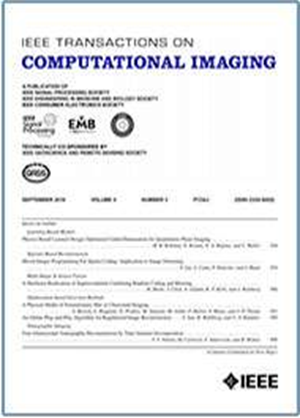LoFi: Neural Local Fields for Scalable Image Reconstruction
IF 4.8
2区 计算机科学
Q2 ENGINEERING, ELECTRICAL & ELECTRONIC
引用次数: 0
Abstract
We introduce LoFi (Local Field)—aLoFi:用于可扩展图像重建的神经局部域
我们引入了LoFi (Local Field)——一种基于坐标的图像重建框架,它结合了卷积神经网络(cnn)和神经场或隐式神经表示(INRs)的优点。与传统的深度神经网络不同,LoFi通过只处理与目标坐标相关的输入的自适应局部信息,一次重建一个坐标。与INRs类似,LoFi可以有效地恢复任意连续坐标下的图像,实现多分辨率下的图像重建。LoFi实现了对分布外数据的出色泛化,内存使用几乎与图像分辨率无关,同时表现与cnn和视觉变形器(ViTs)等标准深度学习模型一样好或更好。值得注意的是,在$1024 × 1024$的图像上进行训练只需要不到200MB的内存——比标准的cnn和vit少得多。我们的实验表明,Locality可以在极小的数据集上进行训练,只有十个或更少的样本,而不会过度拟合,也不会显式正则化或提前停止。
本文章由计算机程序翻译,如有差异,请以英文原文为准。
求助全文
约1分钟内获得全文
求助全文
来源期刊

IEEE Transactions on Computational Imaging
Mathematics-Computational Mathematics
CiteScore
8.20
自引率
7.40%
发文量
59
期刊介绍:
The IEEE Transactions on Computational Imaging will publish articles where computation plays an integral role in the image formation process. Papers will cover all areas of computational imaging ranging from fundamental theoretical methods to the latest innovative computational imaging system designs. Topics of interest will include advanced algorithms and mathematical techniques, model-based data inversion, methods for image and signal recovery from sparse and incomplete data, techniques for non-traditional sensing of image data, methods for dynamic information acquisition and extraction from imaging sensors, software and hardware for efficient computation in imaging systems, and highly novel imaging system design.
 求助内容:
求助内容: 应助结果提醒方式:
应助结果提醒方式:


